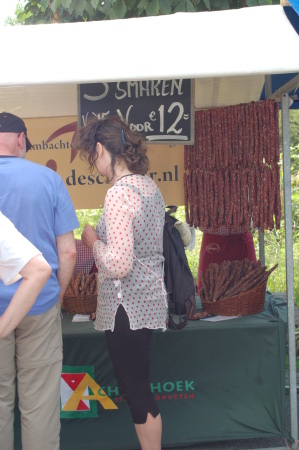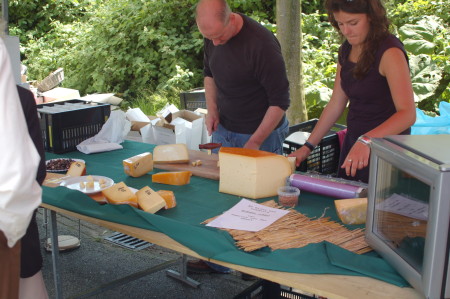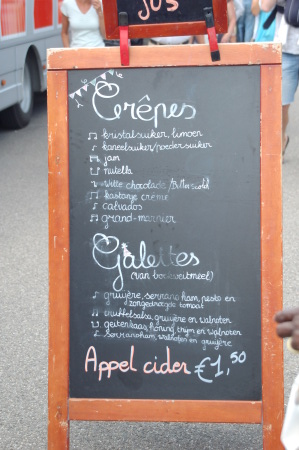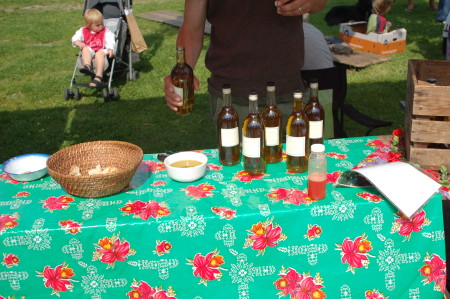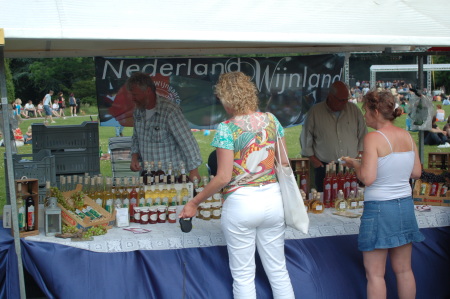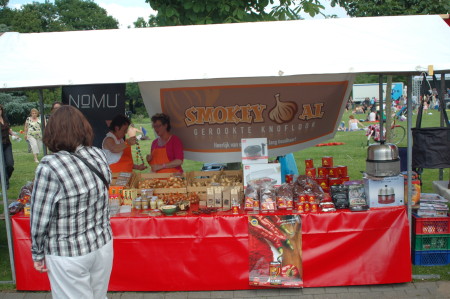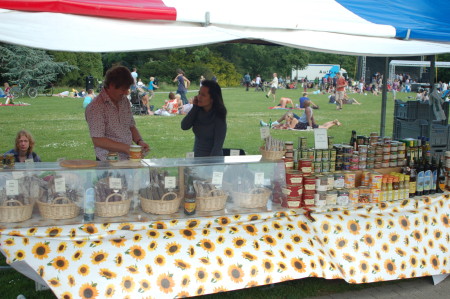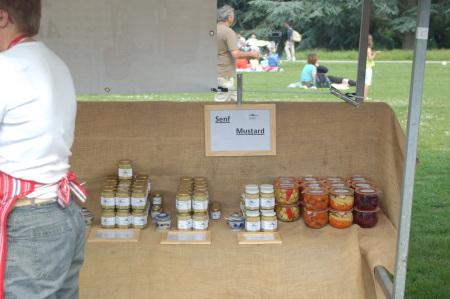I am looking for a business partner of sorts, hopefully in or near Amsterdam.
My Offer
Basically, my proposal is this. My garden is not in a state to start large scale production suitable for supplying a restaurant, and I’m also not a salesman and don’t want to go into the restaurant supply business. I do have a number of interesting things growing this year in my garden, ideas for more, and I expect to have enough to start experimenting.
What I have is knowledge of unusual varieties of fruits and vegetables, as well as contacts for searching out new varieties and information on growing them. The emphasis in the Netherlands is often on ‘old varieties’, but what I specialize in is more modern varieties created with old techniques and traditions. Over time the genetics of all plants change anyway, so nothing is really that old. In the modern world people are more used to eating processed foods and so have different expectations of what tastes good and what’s nice to eat than our ancestors did. I look for food people today find exciting to eat. Of course these can include good tasting older varieties as well.
I speak English and passable Dutch.
I can also offer the publicity associated with my blog.
What I’m Looking For
I’m looking for a restaurant chef who would like to spend some time with me, learn something about my garden and the plants I’m growing, and experiment with cooking some dishes and possibly serving them to a small number of customers. The long term intention would be to find a way of growing some of the more interesting plants on a larger scale for use as ingredients in restaurant dishes.
While the taste of these plants is likely to be far superier to any produce available locally, the cost is likely to be correspondingly high. Therefore, I’m looking for someone with experience preparing high quality dishes that customers may be willing to pay extra for. Of course costs always have to be managed, but to be clear I’m not really looking for someone whose top priority is to produce large amounts of food at low cost.
While making money in this venture is a goal, the first priority is to gain publicity for heirloom produce in Amsterdam as well as myself, this blog and my other projects. Of course if the business venture is successful, I will expect a share of the profits.
Ideally this person would already work for an established restaurant in Amsterdam, but I would also consider working with someone just starting out. To be clear, while I understand many businesses have interns working for them, I am not prepared to take on the primary responsibility of training one.
While this is not a precondition as such, my past experience suggests the chances of success will be highest if this person has an international element to what they do. For example, they themselves are from another country or have a restaurant already where a significant percentage of customers or staff are non Dutch born. Maybe someone educated outside the country.
Few Dutch born people read and participate in this blog, understand the principles behind it, and there is a strong sense here that someone who grows vegetables is very lower class. For someone who perceives me in this way, there simply won’t be any basis for a working relationship. Someone who doesn’t understand the difference between a vegetable garden and a commercial farm, won’t understand how to work with difficult to grow vegetables and how special they are. I’ve had too many frustrating experiences investing time trying to bridge differences like this, and I’m looking for someone where that won’t be necessary.
If anyone has any concrete ideas or contacts along these lines, please let me know. Do you think you’re the right person? I’d like to hear from you!


